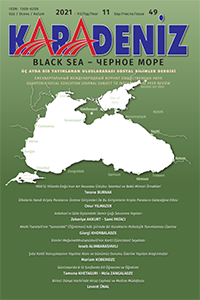PAKİSTAN DEVLETİNİN KURULUŞ SÜRECİNDE ALİGARH EKOLÜ
ALIGARH SCHOOL IN THE FOUNDATION PERIOD OF THE PAKISTAN STATE
Author(s): Çiğdem KIRANŞANSubject(s): History of Education
Published by: Kültür Ajans Tanıtım ve Organizasyon
Keywords: Indian subcontinent; Muslim; Aligarh School; Ahmed Khan; Pakistan;
Summary/Abstract: From the second half of the XVIII century, a new administrative structure and political understanding developed in the Indian subcontinent, which was completely under the control of the British. The negative policies implemented by the British government prompted the Muslim leaders in the region to take action to protect their Islamic identity and to guide religious life. As a result of the intellectual activity that developed in connection with this, Indian Muslims entered the process of "revival" in line with various views and schools formed within the framework of these views. As a result of this revival and its reflections in the field of education, a large part of the Muslim population preferred to focus on traditional education carried out in madrasahs, while the other part turned to modern educational institutions and opened universities, colleges and research centers. The awareness, education and training activities initiated by Sayyid Ahmed Han against the colonialism policy implemented by the British in India and developed with the contribution of many leaders are called the Aligarh school. In this restructuring process, the Aligarh School has adopted the policy of getting along with the British and the need to modernize the institutions in order to secure the future of the Muslims in the Indian sub-continent. As long as Muslims stayed away from politics, they would not have gained political, religious and cultural gains against Hindus and British. Those who grew up in the Aligarh College or University, was founded played a role in the intellectual infrastructure of the South Asian Muslims' independence movement. In this context, many social, educational and political leaders were able to emerge among Muslims thanks to this university. These leaders have played important roles in the political history of Pakistan, India and Bangladesh.
Journal: Karadeniz Uluslararası Bilimsel Dergi
- Issue Year: 1/2021
- Issue No: 49
- Page Range: 284-293
- Page Count: 10
- Language: Turkish

